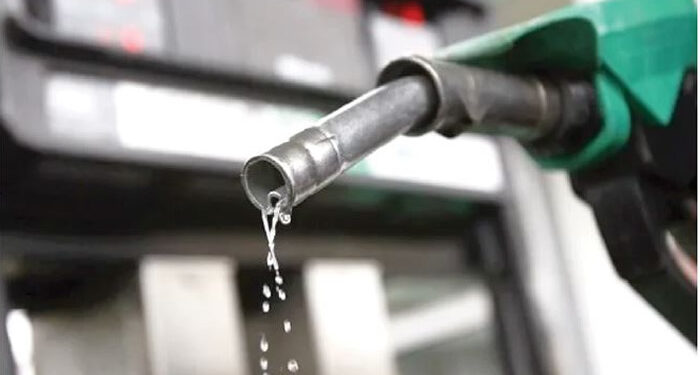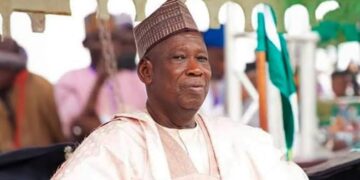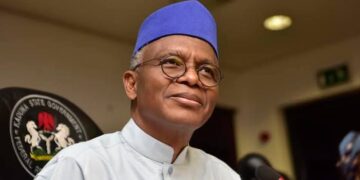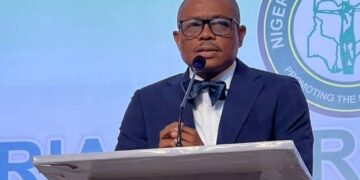Queues for Premium Motor Spirit, commonly known as petrol, continued in Abuja, Niger, Nasarawa, Kaduna, and many other states on Friday as the Federal Government threatened to revoke the operating licenses of oil marketers involved in PMS hoarding.
Long queues of vehicles were seen at various filling stations across the National Capital Territory on Friday, with many stations closed due to lack of supply.
In Kado axis of Abuja Metropolitan Area Council, some filling stations including AA Rano sold petrol at 849 naira per litre while others remained closed.
The petrol shortage has led to frustration among motorists, who queued for hours to get the product.
A taxi driver at an NNPC filling station, Mr Mathew, expressed concern, saying, “I’ve been experiencing a lot of challenges due to the scarcity. It’s been a real headache. When you finally get the money, you’re supposed to spend it with happiness and joy, but instead, you’re spending it with sadness.
“As a taxi driver, I’m struggling to make ends meet. I have to work one day just to get fuel and another day to do my actual job. It’s a constant struggle. We’re facing challenges just to survive, and it’s not giving us any joy. We’re struggling in our own country, and it’s frustrating.
“I implore the government to look into this issue and find a solution. We need a better way forward to bring joy and prosperity back to our lives.”
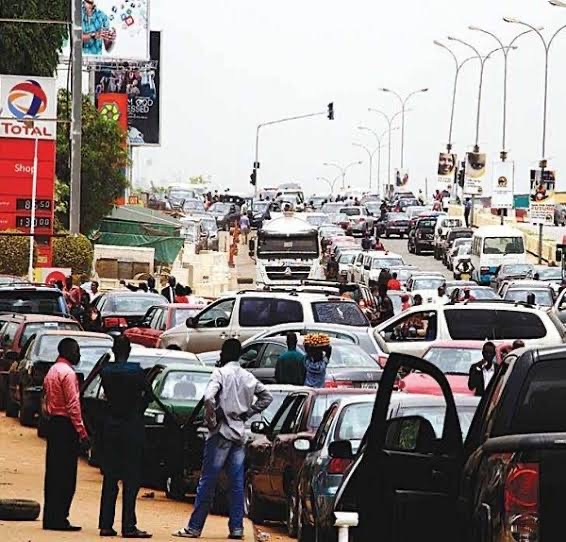
Responding to the processions across the country, the Federal Government through the Nigerian Midstream and Downstream Petroleum Regulatory Authority announced that gas stations that are hoarding petrol or selling it in canisters to bootleggers will have their licenses canceled.
During a tour in Abuja, the Executive Director of Distribution Systems, Storage and Retailing Infrastructure, NMDPRA, Mr Ogbugo Ukoha, warned gas stations against the worsening fuel supply crisis in Nigeria. In a video clip shared by regulators during an inspection of a Total Energies gas station, Ukoha told the store’s managers, “You need to take this (warning) very seriously. If you need security reinforcements, speak to your management.”
He said the gas stations should stop promoting the product to block marketing who distribute it in jerrycan.
Ukoha said this raises serious safety concerns and needs to stop.
The downstream regulator, under the handle “X,” also said it had declared war against the illegal sale of petroleum products.
“NMDPRA embarks on a war against the illegal sale of petroleum products, especially PMS in jerrycans. Filling stations are advised to desist from servicing illegal peddlers; failure to do so would result in the suspension of retail licenses,” the agency said.
Meanwhile, it emerged on Friday that the NNPC is still struggling to import enough petrol into Nigeria.
It was also learned that the development has prompted depot owners to sell petrol to dealers at inflated prices. Marketers are aware that Nigerians in dire need of fuel will continue to prefer the product and are willing to buy it at any price.
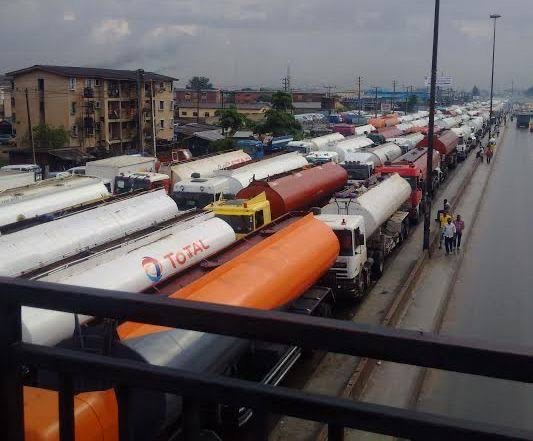
On July 27, NNPC spokesperson Olufemi Soneye said the fuel shortage in Abuja and Lagos was partly due to disruptions in ship unloading. “The NNPC Ltd wishes to state that the tightness in fuel supply and distribution witnessed in some parts of Lagos and the FCT is a result of a hitch in the discharge operations of a couple of vessels,” Soneye explained.
He explained that the company is working around the clock with all stakeholders to resolve the situation and restore normal operations.
However, the situation has yet to improve despite Soneye’s promise over three weeks ago.
Recall also that on July 8, 2024, NNPC said the fuel crisis was caused by bad weather. Soneye said the fuel queue was a result of thunderstorms disrupting ship-to-ship transfers of PMS between mother and daughter vessels.
He added that the bad weather also affected berthing at jetties, loading onto trucks, and transportation of products to gas stations, causing disruptions to supply logistics. He maintained that due to the flammability of petroleum products and regulations of the Nigerian Meteorological Agency, it is not possible to load gasoline during storms and lightning.
“Adherence to these regulations is mandatory as any deviation could pose a severe danger to the trucks, filling stations, and human lives. Similarly, the development was compounded by consequential flooding of truck routes, which has constrained the movement of PMS from the coastal corridors to the Federal Capital, Abuja,” he added, noting that loading had begun at that point.
Reports had earlier revealed that the state-run energy company was in debt to some suppliers. Reuters reported that Nigeria’s debt to PMS suppliers has exceeded $6 billion, doubling since early April, as NNPC struggles to bridge the gap between fixed pump prices and international fuel costs.
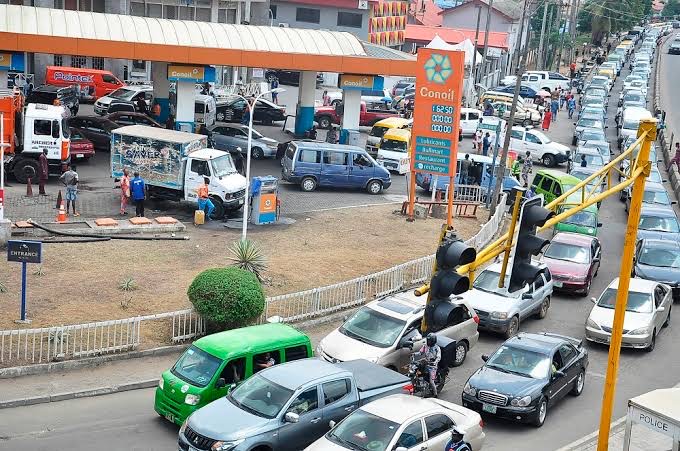
The report said the company had failed to pay for some of its January imports, putting the late payment at $4-5 billion. As per the terms of the contract, NNPC is required to pay within 90 days of delivery.
The only reason traders are putting up with it is the $250,000 a month (per cargo) for late payment compensation,” an industry source told the international news agency. The report said the two suppliers had already stopped participating in recent tenders because they had reached their self-imposed debt ceiling to Nigeria, meaning they would not deliver any more gas until they received payment.
NNPC, however, denied the report, “False. Did they name the marketers they claim we supposedly owe? Let them name them,” Soneye told Journalists in July. However, petrol was still observed to be available in major cities, especially in the north, on Friday.
Soneye did not respond to calls on his phone or to messages sent by our correspondent on why queues were continuing at gas stations.
Management said on Friday that NNPC, the sole importer of petrol, has been unable to supply sufficient quantities of the product to the country since last month.
Various sources confirmed that warehouses are out of stock and are waiting for fuel supplies from ships that are yet to dock.
Depot operators said some traders are now selling the product at higher prices as dealers are keen to buy. “There is no improvement at all. Even most depots around Apapa jetties are out of stock, waiting for vessels to deliver to tanks,” the pilot told our correspondent, who requested anonymity as he was not authorized to speak on the matter.
A marketer, who requested anonymity due to the sensitive nature of the issue, said the product is being sold at inflated prices in some warehouses.
“Marketers can go to any length to buy at whatever cost, as there is a market to sell it. If the depot gives it for N700/litre, they will rush to buy and sell at about N800/litre. That is why the pump price keeps rising,” the source revealed.
National vice-president of the Nigerian Association of Independent Petroleum Marketers, Hameed Fashola, said traders are still waiting for NNPC to supply enough fuel.
“No hope on fuel scarcity yet. Whatever NNPC brings is what marketers will push out. There is a shortage in supply. We are still managing whatever we have,” Fashola explained.
Petrol prices in Abakaliki, the Ebonyi State capital, ranged from N1,000 to N1,050 per litre on Friday.
Long queues formed at some petrol stations in Gombe State.
Bovas and Conoil were some of the biggest retailers selling petrol in the state on Friday. It was found that stations with fewer queues were selling petrol at N950 per litre. In Katsina, some petrol stations which earlier sold at N830 per litre increased their prices to N900, N930, and N1000 from Friday.
A random survey of petrol stations in Jos Town, Plateau State, revealed that petrol prices ranged from N900 to N950 while NNPC retail outlets continued to sell at N670 per litre.
The fuel crisis in Yobe State worsened on Friday with most petrol stations in Damaturu and environs remaining closed, further exacerbating the situation with the recent hike in fuel prices.
The branch secretary of the Independent Petroleum Marketers Association of Nigeria and National Association of Road Transport Workers, Yobe State, Ahmed Saje, said petrol was being sold at N900 to N1000 per litre.
Fuel scarcity persisted in the Kaduna metropolis and environs, causing untold hardships to motorists and other road users on Friday. Despite all efforts being made to resolve the issue, the situation remained dire. Long queues and fuel shortages plagued the city.
A visit to an NNPC bulk filling station in Barnawa, southern Kaduna on Friday revealed a dire situation with long queues and no fuel in sight. The station management did not supply fuel to customers, leaving many stranded.
Residents of Sokoto State expressed dissatisfaction over the increase in the price of PMS to N1,000 per litre. Queues at filling stations in Bauchi grew even longer on Friday as many filling stations remained closed.


